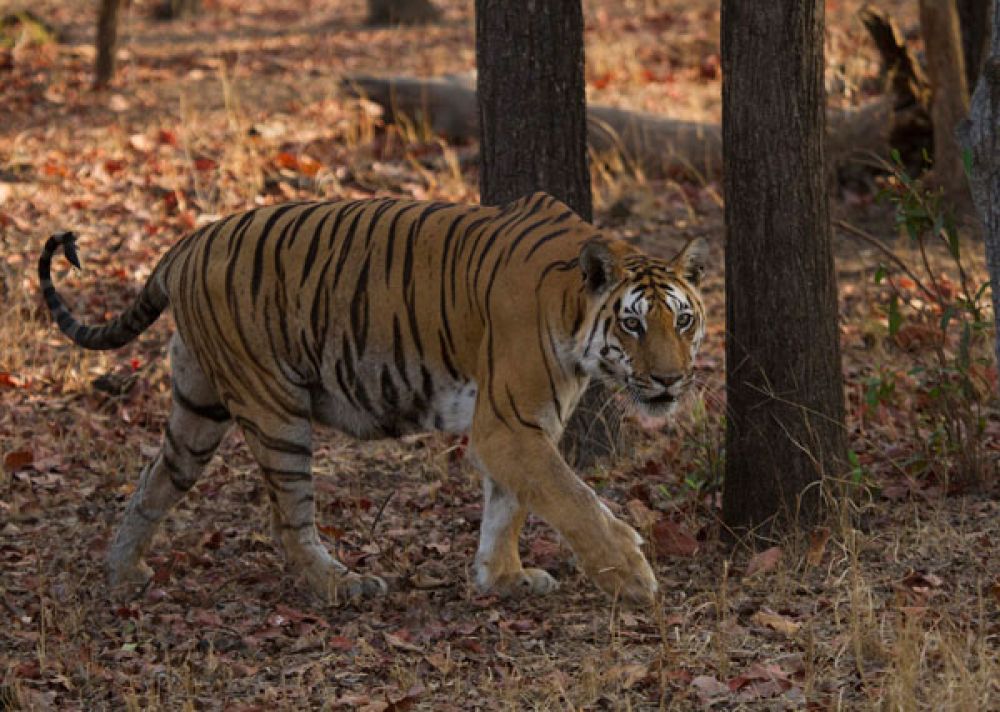

Pench National Park, nestled in the heart of India, has long been a bastion of natural beauty and wilderness. Situated in the state of Madhya Pradesh, this spectacular wildlife sanctuary has captured the imaginations of nature lovers and adventurers for decades. Among its many treasures is the less trodden Bijamatta - a place of serene water bodies and lush flora that beckon the discerning traveler.
The origins of tourism in Pench National Park date back to the early 1970s when it was declared a sanctuary. However, it wasn’t until 1975 that Pench gained recognition as a national park, paving the way for structured tourism. It was the captivating flora and fauna, particularly the majestic Bengal tiger, which initially attracted enthusiasts to explore the region. By 1992, Pench achieved the status of a Tiger Reserve under the Project Tiger initiative, further amplifying its appeal as a must-visit destination for wildlife aficionados.
One of the primary historical influences drawing visitors to Pench has been its connection to the classic tales of Rudyard Kipling’s "The Jungle Book". It is widely believed that the verdant forests of Pench served as the inspiration for the enchanting jungles where Mowgli's adventures unfolded. This literary association continues to enchant tourists, enhancing the park's mystique.
While Pench National Park boasts several popular zones, Bijamatta is a relatively hidden gem that has slowly gained attention for its quiet beauty and tranquil ambiance. Bijamatta, with its small yet picturesque water body, provides an idyllic setting for spotting a variety of wildlife, including a plethora of bird species that thrive in and around the water's edge.
Bijamatta's inclusion in safari circuits has broadened the scope of wildlife experiences, offering unique encounters that contrast the more frequented areas of the park. Tourists now have the chance to immerse themselves in an environment that remains untouched by crowds, allowing for a more intimate connection with nature.
Recent trends in tourism within Pench National Park, and Bijamatta in particular, reveal a growing emphasis on sustainable and responsible travel. There is an increased awareness among both tourists and operators about the importance of conservation and minimizing human impact on these ecosystems.
Eco-friendly accommodations have sprung up around the park, providing sustainable options for visitors who wish to minimize their carbon footprint. Wildlife safaris have become more regulated to ensure minimal disturbance to the animals. Additionally, community-driven initiatives have become more prevalent, with many local guides and naturalists involved in offering authentic wildlife experiences while also educating tourists on conservation efforts.
Photography tourism has also seen a surge with professionals and enthusiasts seeking the perfect shot of Pench's elusive tigers and other charismatic fauna. Workshops and guided photo tours are now part of the park's offerings, tailored to the needs of budding and experienced photographers alike.
The historical allure of Pench National Park, combined with the serene splendor of Bijamatta, creates a tapestry of experiences for visitors. Through the lens of responsible tourism and an ongoing commitment to preserving this slice of wilderness, Pench continues to be a beacon for explorers seeking connection with the natural world. As tourism evolves, the commitment to protecting the park's legacy and biodiversity remains steadfast, ensuring that the beauty of Bijamatta and Pench as a whole endures for generations to come.